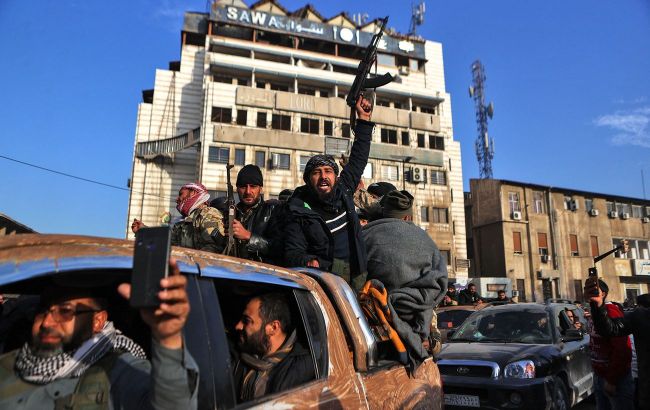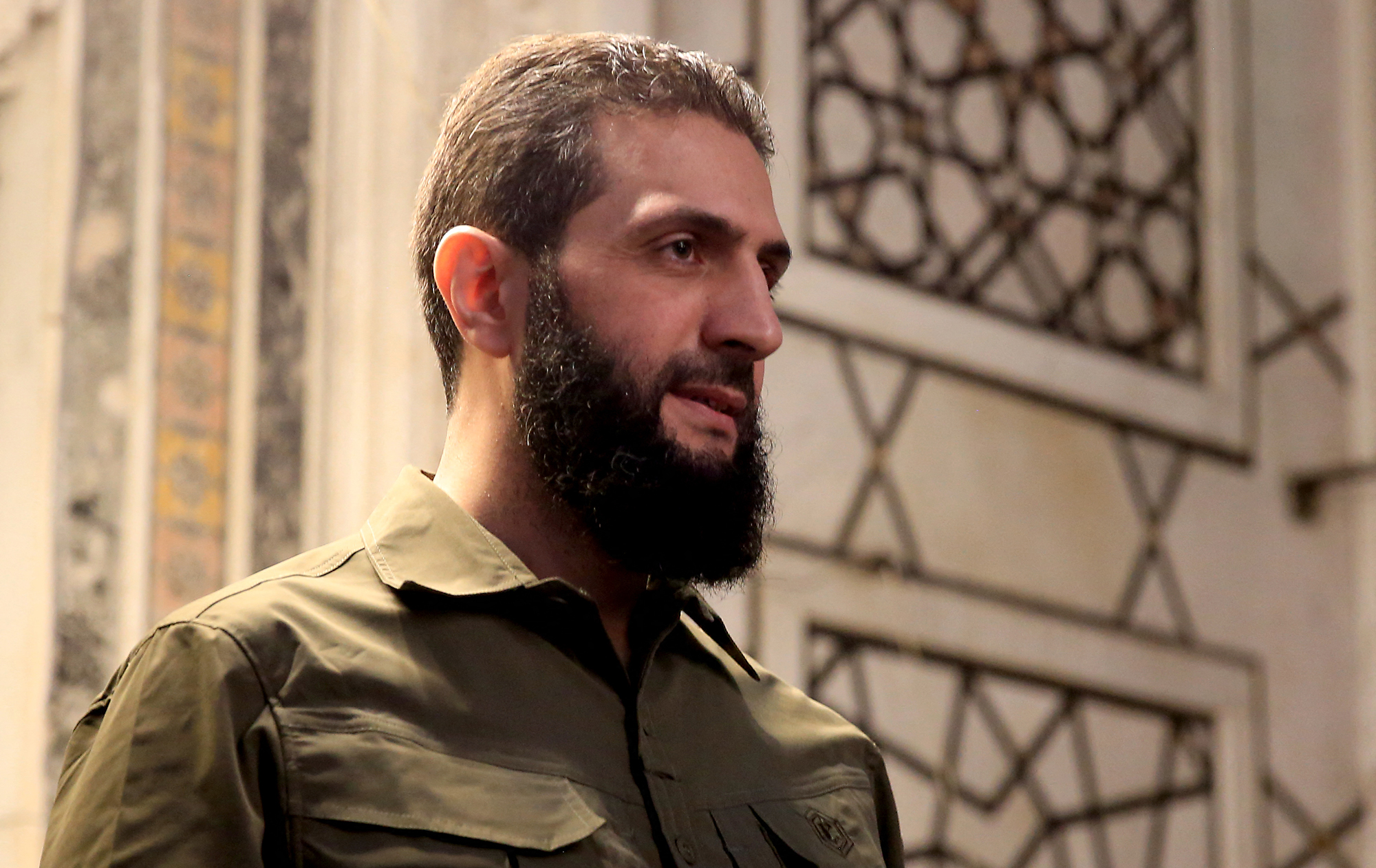Fragile victory: Why Assad's regime collapsed so quickly and what’s next for Syria
 Rebels on the streets of liberated Homs (photo: Getty Images)
Rebels on the streets of liberated Homs (photo: Getty Images)
What caused the sudden collapse of the Syrian dictator, who will determine Syria's future, and the risks involved — read in the article by RBC-Ukraine.
Contents
It is hard to say which of the two pieces of news from Syria was more unexpected: the sudden resurgence of the civil war after several years of relative calm or how quickly Bashar al-Assad's regime collapsed. From the beginning of the rebels' offensive (who are also referred to as militants, Islamists, or opposition members - the world has yet to settle on the correct term) to the fall of Damascus, only about a week and a half passed. Assad Jr. ruled the country for 24 years, unable to surpass his father, Hafez, who led Syria for 29 years. As a result, the half-century dynasty crumbled like a house of cards.
The West generally perceived its fall positively, as it was hard not to: the regime of a brutal dictator, responsible for the deaths of hundreds of thousands of his fellow citizens, a participant in Iran's axis of evil, and, more broadly, the anti-Western coalition, had been overthrown. However, there are also alarming notes - it is unclear what or who will replace Assad and whether his successors might become an even greater source of headaches for the civilized world.
Why Assad's regime fell
In the early days of the rebel offensive from the Idlib province, most analysts predicted a quick stabilization of the situation: Assad's army would recover from the initial shock, Iran and Russia would step in, and government forces would manage to halt the Islamists at certain points. However, events unfolded so rapidly that predictions became outdated almost as soon as they were published. The amount of red (used to mark territories controlled by Assad) on the maps diminished not daily, but hourly.
A true snowball effect emerged: the rebels advanced, and captured abandoned equipment and ammunition left by Assad's forces, which further bolstered their offensive, and the cycle repeated. Meanwhile, Assad's army succumbed to a self-fulfilling prophecy: the successes of the advancing rebels crushed their already low morale, leading to deeper retreats and an even greater collapse in morale.
It became clear that Assad's regime, without the crutches of Iran and Russia, could neither move forward nor even stand. Yet both Moscow and Tehran, after some initial scrambling at the start of the conflict, soon abandoned their ally (or junior dependent partner). The reasons for this are well-documented. Russia is overstretched by its war against Ukraine and simply lacks the resources for additional conflicts. Iran and its proxy, Hezbollah, have been significantly weakened by Israeli strikes over the past year.
As noted by several Western media outlets, the fall of Assad's regime was unexpected but a logical consequence of Hamas's terrorist attack on Israel in October of the previous year. Hamas attacked, Israel launched an operation in Gaza, Hezbollah came to Hamas's aid, and Israel dealt a heavy blow to Hezbollah - and as a result, there was no one left to defend Assad's regime.
The regime could not rely on its strength either - the government army was unwilling to defend its leader. The main reason for this was the utterly dire state of the economy. Since 2020, when a conditional ceasefire began, Assad did nothing to rebuild the country after the civil war, focusing instead on consolidating personal power. As a result, nine out of ten Syrians live below the poverty line. In four years of ceasefire, the Syrian pound's exchange rate against the dollar has plummeted more than tenfold.
 Demonstrators outside the Syrian embassy in Istanbul trample on Assad's portrait (photo: Getty Images)
Demonstrators outside the Syrian embassy in Istanbul trample on Assad's portrait (photo: Getty Images)
Even paying salaries to career military personnel was problematic, and conscripts - most of whom did not belong to Alawites (a religious minority in Syria, to which Assad and the elite belong) - were unwilling to die for him. Even the Alawites themselves, for the first time, refrained from defending their coreligionist.
One of the key sectors of the economy turned out to be the production of the drug captagon, managed by what was nominally an elite unit of the Syrian army led by Assad's brother. The government forces as a whole were more focused on drug trafficking than military training. As a result, in purely military terms, the rebels outperformed Assad’s army both in skill and equipment - clearly benefiting from Türkiye's support.
Despite all this, Assad still had a chance to hold onto power indefinitely. He could have capitalized on the fact that in recent years, the international community - not just Arab nations but even many in the West - had come to terms with his regime's survival of the civil war, and global isolation had started to weaken. Or he could have accepted Recep Tayyip Erdoğan's proposal to "determine the future of Syria together."
However, Assad made the typical mistake of dictators, deciding to cling to power at all costs and refusing any compromises. In the end, he was forced to flee to Russia in haste.
How the situation in Syria will develop further
The joy of the rebels and all those who watched the "greening" (symbolizing anti-Assad forces) of Syria's map will soon come to an end. According to a well-known rule, maintaining a victory is often harder than achieving it. This isn’t about an Assad comeback- he is now the ex-dictator, hated by seemingly everyone in Syria (though that didn’t stop him from allegedly securing - or fabricating - 95% support in the elections three years ago).
Syria's future will now be determined by a conglomerate of various victorious factions, with active involvement from external players. The clear winner of the Syrian campaign is Türkiye, which has significantly increased its influence in the region. For the second time in a short period, Türkiye has shown its ability to resolve regional conflicts in its favor (the first being the Armenia-Azerbaijan war).
Notably, the past week and a half's events unfolded with little involvement from the nominal global superpower—the United States, which always has interests anywhere globally, especially in the Middle East. President Joe Biden is now a classic lame duck, while Donald Trump currently lacks official powers. Thus, regarding the resolution of one of the most significant conflicts of the past two decades, Washington has been left to observe closely, as stated by its official representatives.
While Türkiye has sent a clear signal to all regional forces about where the real power lies, Russia has essentially betrayed its ally for the second time (the first being Armenia). Although a total disaster akin to the US evacuation from Afghanistan was avoided, the potential loss of military bases is a severe blow to Moscow's plans and logistics.
However, the bigger loser, undoubtedly, is Iran. Its local "axis of evil" has been left without a key link. Hezbollah, too, faces grim prospects without its established supply chain. Consequently, Israel emerges as a beneficiary, as its adversary has suffered another defeat.
Yet, Israel isn't exactly celebrating but rather ensuring that the fall of its old enemy Assad doesn’t lead to even bigger problems. It continues to strike Syrian military depots and establish buffer zones.
Jerusalem's concerns are understandable - no one can predict what kind of post-Assad order might emerge in Syria, or if one will form at all. For now, the leading contender for power is clear: Abu Mohammad al-Julani, the leader of the main rebel group, Hayat Tahrir al-Sham.

Abu Mohammad al-Julani (Photo: Getty Images)
The former leader of Syria's Al-Qaeda branch is actively positioning himself as a moderate figure, discussing institutional mechanisms and democracy, and promising full respect for Syria's numerous minorities. It seems that the role of a respectable, handshake-worthy head of a sovereign state appeals to him more than that of a jihadist leader roaming the desert. However, one must recall that the Taliban once promised an inclusive government only to eventually ban women from even talking to each other. Another, even more complex, question is whether al-Julani will have enough authority to control the dozens, if not hundreds, of armed groups of varying degrees of radicalism.
If Syria descends once again into a civil war of everyone against everyone, the long-dormant ISIS, which was never fully eradicated, may resurface. Transforming Syria into a civilized democratic state after a civil war would undoubtedly be a near miracle, as history usually follows a different path. Libya's descent after Gaddafi's fall serves as a stark reminder. For now, however, the long-suffering Syrian people have reason to celebrate.
Sources: Al-Jazeera, BBC, Al-Majalla, Sky News, Foreign Policy, Financial Times, and The Telegraph.

